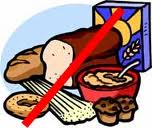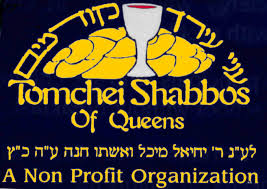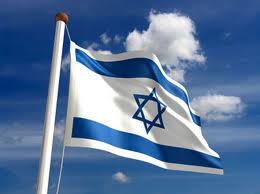Dear Friends;
I hope that you will enjoy the following Parsha summary followed by a Dvar Torah;
” Parsha in a Nutshell “
Parshat Shemini begins by discussing the events which occurred on the eighth and final day of the inauguration service in the Mishkan (Tabernacle). After months of preparation and anticipation, Aaron and his sons are finally installed as Kohanim (priests) in an elaborate service. Aaron blesses the people, and the entire nation rejoices as Hashem’s presence rests upon them. However, the excitement comes to an abrupt halt as Aaron’s two elder sons, Nadav and Avihu, offer a “strange fire before G-d, which He commanded them not” and die before G-d. Aaron is silent in face of his tragedy.
Aaron is informed that the Kohanim are forbidden to enter the Mishkan while intoxicated, and the Torah continues to relate the events which occur immediately after Nadav and Avihu’s tragic death. The portion concludes with a listing of the kosher and non-kosher animals, and various laws about tumah, ritual contamination!
” Dvar Torah “
In this week’s parsha, we learn about a very painful tragedy. The two elder sons of Aaron, Nadav and Avihu, die together in an instant. The story goes as follows: After the completion of the construction of the “Mishkan” (G-d’s mobile Sanctuary), it was time for Mishkan’s inauguration. The excitement was filled in the air. Everyone came to watch this joyful event, somewhat similar to the ribbon-cutting ceremony of the tallest building built in the city — in this case, the house of G-d. The structure of the Mishkan was completed and all the vessels were placed in their right spots and the altar was all ready to begin the first sacrifice ceremony. Aaron and his sons have been appointed as the only Priests to do the ceremonies. For seven days Moshe, Aaron and his sons rehearsed the inauguration ceremony procedures, and finally, it was on the eighth day that G-d’s Presence would finally descend upon the Mishkan, and it was time for the ceremony to start. The joy was in the air and the whole congregation came anxiously to watch this fascinating, never-seen-before event.
But, suddenly, the celebration went terribly wrong. The Torah tells us that just before the ceremony started, the two eldest sons of Aaron, Nadav and Avihu, entered the Holy of Holies, the Kodesh HaKedoshim, without authorization. They decided to offer their own incense, something they assumed would surely bring joy to their Creator. But tragedy struck. A fire came forth from the heaven. And the fire that should have consumed their offerings, consumed them as well, and they both died! The beloved children of a beloved leader on a beloved day in a beloved service were gone in an instant, from glory to death. Aaron’s joy turned to mourning. The Torah reveals to us Aaron’s unexpected reaction; “And Aaron was silent”. The man who had been Moses’ spokesman could no longer speak. The man of speech became speechless!!
Wow, what a tragedy! The immediate question that comes to our Chachamim’s mind and should comes to our minds too is, why?! Why did Hashem react so harshly with Nadav and Avihu?! All they did was, they brought an unwanted gift for Hashem! At the time of Golden Calf,The Benei Yisrael brought offerings for an idol and they didn’t die in an instant?! And now, Hashem’s two loyal servants, sons of Aaron Hakohen, mistakenly bring an unwanted offering to show their love for G-d, and they die in the most tragic manner?! Why, why, why?!
Well, many explanations are given. Some say that the reason for their death was that they came drunk into the sanctuary in front of G-d. Others say, they were too eager to exercise leadership, that’s why they took their own initiative which was disrespectful in the eyes of Hashem. Another opinion says that they disrespected their teachers Moshe and Aaron, by not consulting with them first before bringing their own offering. And the commentaries goes on and on and on….
But to me and maybe to Aaron too, none of these explanations justifies their tragic death. We are talking about the same compassionate G-d who forgave the nation for their despicable sin of the Golden Calf, why couldn’t he find it in his heart to forgive his two loyal servants who mistakenly might have been disobedient.
Well, Rabbi Yisachar Frand, has a wonderful insight to this episode that might explain it all. He says that although, all of the explanations for Nadav and Avihu’s death may be true, but none of the explanations should be convincing, because we should never be content with the reason of death! Hashem wants us to feel sorry for the deceased and to feel compassion towards the dead! Every dead person deserves to be mourned for! We are not here to judge people and to find a justified reason for someone’s death!! We are here to love everyone and accept that the only reason for someone’s death is because it was G-d’s will! Do we have to understand G-d’s will? No! But do we have to accept Hashem’s decisions? Yes! Nadav and Avihu should not be remembered as two drunken outcasts who committed a sin, but rather, they should be remembered as the high Priests and the loyal servants of G-d who were rightfully given a respectful funeral and mourning period. Aaron kept complete silence after this tragedy, because any show of emotions or any spoken words would have revealed lack of faith due to lack of understanding!
Yes my friends, our religion is not a religion of logic; it’s a religion of faith. In times of distress and tragedy, sometimes we search for answers but our efforts seems to be used in vain. We are not content. Nothing seems to make sense. We may even start questioning G-d’s decision, chasbe shalom, but it does not give us the right to lose faith in him. After all, if we believe that G-d is a superpower, then our lack of understanding should not bother us so much, since we believe that G-d has more power of understanding and judgment. We learn from Aaron’s silence that not being content with the reason for a tragedy is not a sin, but losing faith in Hashem, is! Remember that our G-d is a compassionate G-d, who is slow to anger and abundant in kindness and truth. He loves his people and he wants the best for us. He doesn’t want to hurt us, and if we are faced with a tragedy, we should believe that Hashem knows what is best for us and we should accept his decision.
In the Oxford dictionary, a “tragedy” is defined as a “sad event; a series of drama with an unhappy ending”! In Judaism, however, a tragedy is defined as a sad event which is an act of G-d beyond human understanding, but we have faith in Him that he surely knows what he is doing!
Shabbat Shalom & Regards;
Martin















You must be logged in to post a comment.